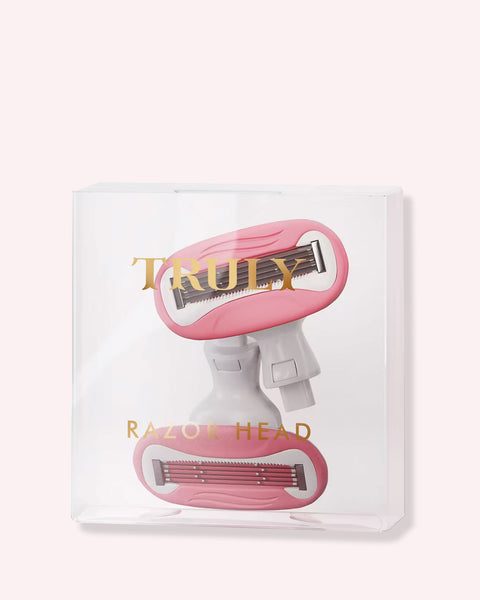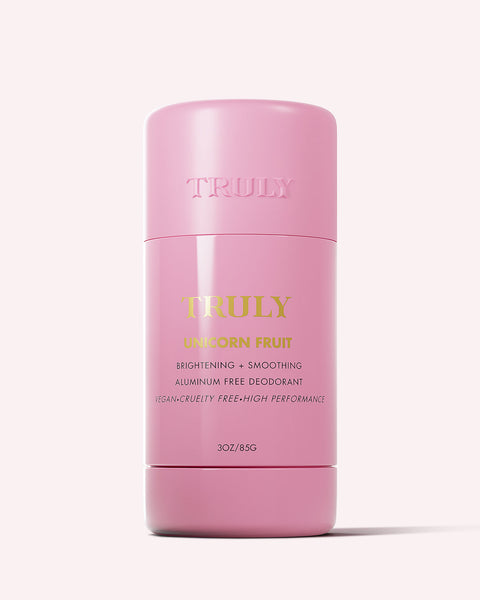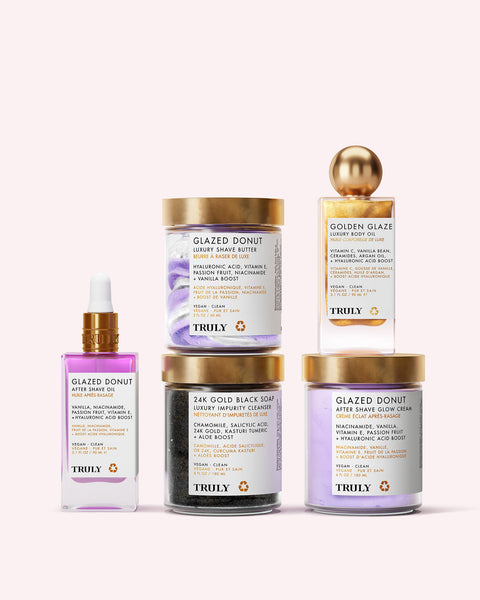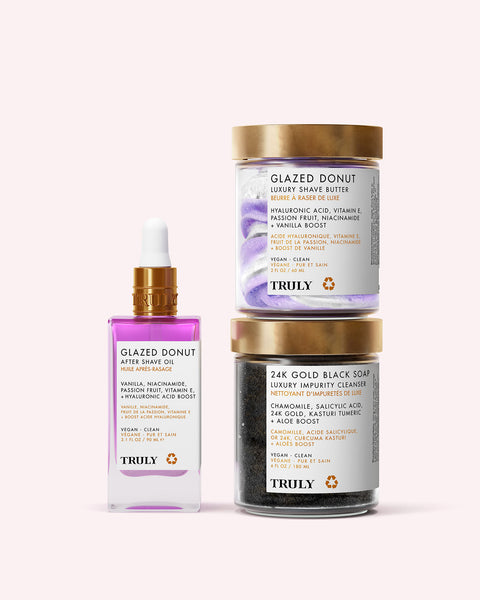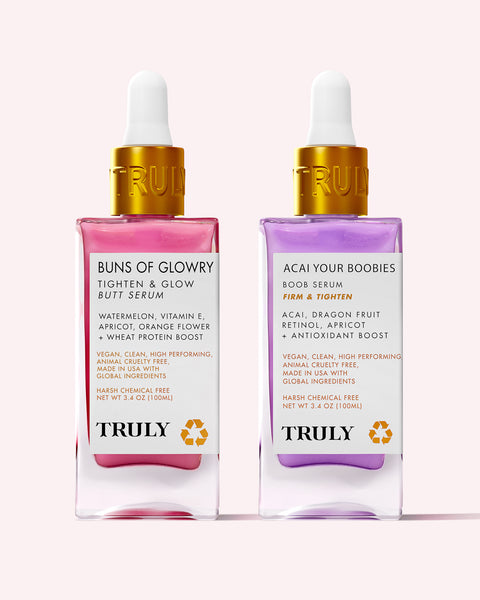Fragrance Free? When and How to Opt for Scented Vs Unscented Skincare
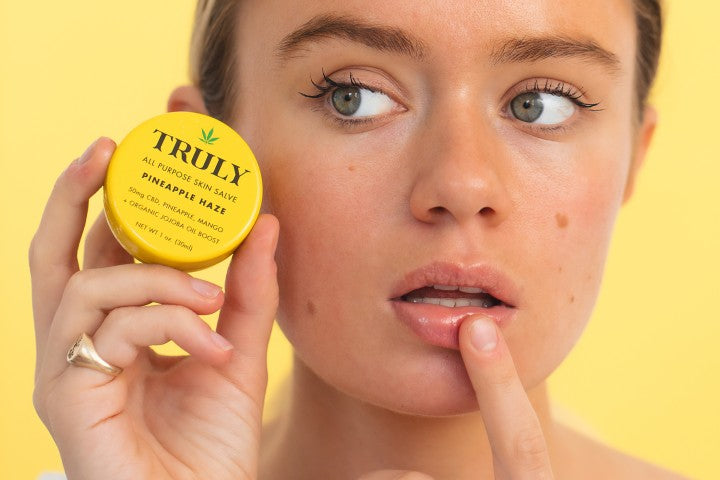
Fragrance often crops up in beauty products, but it’s actually an ingredient you should be shunning from your skincare regimen.
According to the American Academy of Dermatology (AAD), fragrance is the leading cause of cosmetic contact dermatitis. Shockingly, it’s up there with nickel and poison ivy – ingredients we know to avoid.
So if you’ve recently noticed a seriously red or itchy rash on your skin, your products could be to blame. The molecule of scent could be wreaking havoc on your skin.
Let’s take a look at how fragrance affects the skin and easy ingredient swaps that offer natural fragrance without the nasty side effects.
THE PROBLEM WITH FRAGRANCES…
If you have inflammatory skincare conditions like eczema, acne, psoriasis or rosacea, fragrances may worsen your condition.
According to Columbus-based esthetician Shona Gibson, symptoms with fragrance allergies varies from itching to red bumps to increased sensitivity.
“For those with darker skin types this can mean having to deal with post-inflammatory hyperpigmentation or scarring, which can take months to fade,” she says.
The truth is, fragrance is a highly irritating ingredient that can cause many negative reactions on the skin. So if you can avoid it, do.
“Fragrances are found in a wide variety of cosmetics, cleaning supplies, medications, foods, personal-hygiene products, and more,” says dermatologist Dr Melissa Kanchanapoomi Levin.
“Fragrances are known as one of the leading causes of allergic contact dermatitis (ACD), and can also cause other skin conditions such as irritant contact dermatitis, contact urticaria (hives from application of an allergen such as cinnamic aldehyde, menthol, balsam of Peru, cinnamates), photo-allergic reaction, phototoxic reaction.”
HOW TO FILTER OUT FRAGRANCE
To identify fragrant ingredients in products, you can either look for “fragrances” or “parfum” listed on the ingredients. Or, keep your eyes peeled for other words in the list that are fragrance, like geraniol, eugenol, limonene, and citronellol.
While fragrance may look like it’s just one ingredient on the label, that’s not always the case. Thanks to an outdated FDA loophole, many companies use a blend of several fragrance molecules. And they don’t need to state that on their packaging. Some use even more!
For that reason, it’s best to try and eliminate fragrance from your skincare routine altogether. Opt for natural alternatives instead. We’re going to show you the best way to do that.
CHOOSE NATURAL INGREDIENTS INSTEAD
“Research suggests that both natural and synthetic fragrances can cause sensitising in all skin types,” explains consultant dermatologist Dr. Aikaterini Charakida. “The balance in essential oils has to be carefully considered in order for natural skincare to be suitable for sensitive skincare types. If you have problems with sensitive skin, it’s advisable to use products that don’t contain irritating ingredients such as fragrances.”
In some cases, it’s simply better to look for unscented skincare to avoid any irritation – especially if you have sensitive skin. Here are some natural ingredients worth looking out for.
Coconut Oil
While unscented, coconut oil is a phenomenal ingredient for the skin. This non-fragrant plant oil is packed with fatty acids like lauric acid and linoleic acid, which hydrate, plump, and clear the skin. That’s right – it may also help fight acne.
“Coconut oil may be useful in treating acne-prone skin, because it has high levels of skin-soothing linoleic acid—something that’s deficient in the skin of people with acne,” says skincare pro Dr. Joshua Zeichner. “It also contains lauric acid, which is thought to be antimicrobial, so it may lower levels of acne-causing bacteria on the skin and reduce inflammation.”
Obviously, everyone is different. Oily skin types, for instance, may find coconut oil to heavy. It’s all down to your taste and skin type.
Recommended product: Truly’s Coco Rose Fudge Whipped Body Butter.
Rosewater
Rosewater is a natural perfume with a host of skincare benefits. It’s also an anti-inflammatory so you can enjoy its beautiful floral scent without suffering from any irritation or redness.
Since ancient times, rosewater has been used as a beauty treatment thanks to its soothing, calming benefits.
“Rose water can be used to cleanse and soothe the complexion,” says holistic aesthetician Tammy Fender. And the best part is, it smells divine!
Recommended product: Truly’s Volcanic Rosewater All-Over Hydrating Spray.
Peppermint Oil
With its incredible scent and aromatherapy powers, peppermint oil is a great natural fragrance to look for in skincare products. Plus, it offers a lot of skin rewards.
“Peppermint oil naturally cleanses the skin and has antiseptic and antibacterial properties. It has a cooling effect which soothes irritation and inflammation due to acne,” says Dr. Debra Jaliman, a New York City-based dermatologist.
It’s also great for stimulating circulation in the lips, creating a plumping effect to make your pout appear fuller and jucier. It also smells really refreshing!
Recommended product: Truly’s GLOAT Luscious Lip Butter.
Jojoba Oil
This unscented carrier oil is a highly moisturizing skincare ingredient with a myriad of benefits. It’s definitely worth incorporating it into your daily routine. It’s also really versatile.
“Jojoba oil can be used as a moisturizer, hair shine enhancer, makeup remover, face wash, cuticle treatment, foot softener, lip balm, and sunburn relief treatment,” says Stacy Chimento, M.D., a dermatologist at Riverchase Dermatology in Miami Beach, Florida.
Even more interesting, jojoba oil offers powerful anti-aging properties.
“With a vitamin B complex that fights off free radicals and repairs cell damage, and vitamin E that helps speed up cell regeneration, jojoba oil is a great anti-aging ingredient,” says plastic surgeon Dr. Alan Durkin.
Recommended product: Truly’s Pineapple Haze All-Purpose Skin Salve.
SCENTED VS. UNSCENTED SKINCARE
As much as we love to slather on sweet-scented cleansers, serums, and lotions, sometimes it’s the non-scented ingredients that work better for your skin. Fragrances are the devil in skincare.
Fortunately, you can still enjoy sweet-smelling products without suffering the consequences of conventional, artificial fragrances.
With this guide, you’ll hopefully be able to shun fragrance from your skincare routine and implement both scented and unscented high-performing ingredients. The result? Better, brighter, calmer skin.







